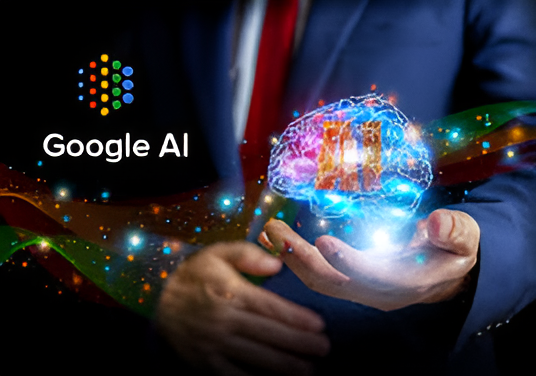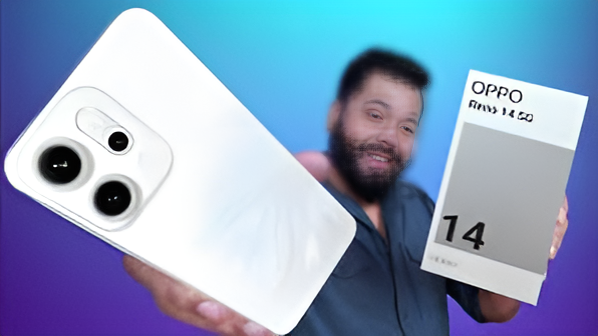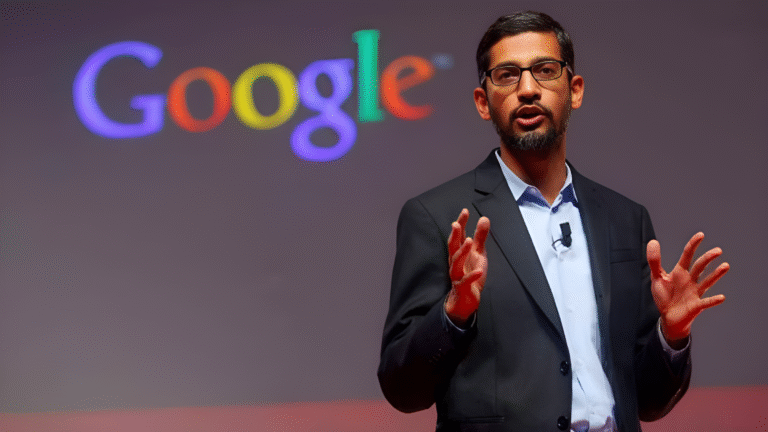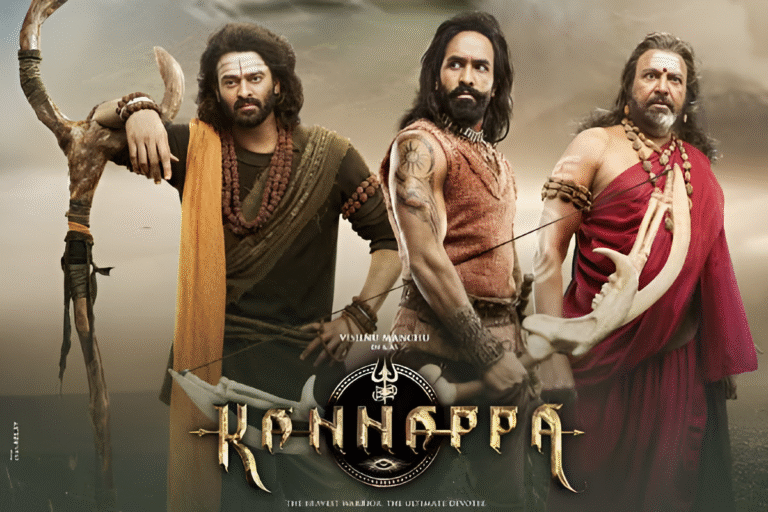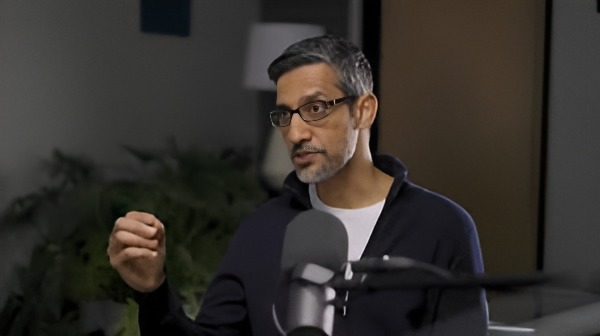
Sundar Pichai, the CEO of Google, spoke about the future of search, AI, content creation, and Google’s ties with publishers in a recent interview on The Verge’s Decoder podcast. He stressed that Google Search is being substantially transformed, evolving past the conventional “10 blue links” to a more dynamic experience powered by AI. Pichai unveiled functionalities such as AI Mode, Deep Search, and AI Overviews, with the goal of delivering users contextual and conversational replies that reference multiple sources.
Sundar Pichai recognized the difficulties related to worries from publishers regarding the impact of AI-generated content on web traffic, yet he conveyed a hopeful outlook. He noted that AI Overviews have resulted in greater user engagement and elevated click-through rates for associated content. Pichai underscored Google’s dedication to backing the open web and guaranteeing that content creators maintain traffic and acknowledgment for their efforts.
Sundar Pichai emphasized Google’s dedication to AI by talking about how the Gemini AI model will be incorporated into search functions. He highlighted that Gemini offers more sophisticated and interactive search experiences, facilitating a conversational engagement with information for users. This integration is included in Google’s larger plan to make AI a key element of its services, thereby improving the overall user experience.
Additionally, Pichai spoke about the significance of balancing swift progress in AI with responsible application. He talked about the importance of ensuring that search results contain high-quality, reliable information, particularly given the current surge in AI-generated content. Google is putting resources into the enhancement of its ranking systems, with the aim of giving precedence to trustworthy sources and curbing the dissemination of misinformation.
Even with AI’s revolutionary effect on search, Pichai voiced assurance regarding the durability of Google’s ad-driven business model. He observed that users continue to appreciate a variety of sources and links, and that AI improvements are being developed to supplement traditional search results rather than replace them. Google is trying out the incorporation of ads into AI-driven search features, aiming to preserve user trust and engagement.
To gain a deeper understanding, you can check out the complete interview on The Verge’s Decoder podcast.
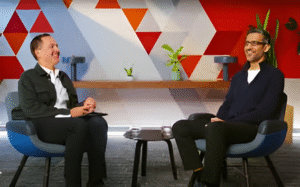
A Comprehensive Review of His Latest Interview on the Decoder Podcast
In a conversation that shed light on and provided insight into various matters, Google CEO Sundar Pichai discussed on The Verge’s Decoder podcast the company’s future plans for Search, the increasing sway of artificial intelligence (AI), its effects on content creators and publishers, and the need to strike a philosophical balance between innovation and responsibility. Pichai, as Google leads the charge in the AI revolution, offered insights into the company’s strategy for managing this crucial shift and redefining daily interactions with information for billions of people.
🔍 Rethinking Search: Beyond the 10 Blue Links
For over 20 years, Google Search has been associated with a collection of “10 blue links” that users could peruse to locate the information they required. Nevertheless, Sundar Pichai clarified that this model is now obsolete. Static search results in their conventional format are being superseded by interactive, AI-driven summaries that can understand intricate inquiries and provide deeper insights.
Pichai stated that Google has rolled out features like AI Overviews, Deep Search, and the Search Generative Experience (SGE) to improve user interaction with search. These innovations aim to offer summarized answers that still connect to relevant sources, enabling users to investigate topics in depth and interactively.
He clarified that today’s users frequently look for context and comprehension rather than merely raw links. AI Overviews, utilizing Google’s Gemini model, are capable of synthesizing results, providing brief summaries, and assisting users in reaching the core of their searches more quickly and efficiently.
🤖 The Role of Gemini AI and Multimodal Search
Pichai underscored the Gemini AI model’s crucial importance in determining how search will develop. Google’s AI model Gemini is its most sophisticated, able to handle text, images, video, code, and additional formats within a single framework. With this multimodal capability, users can search not only through typed queries but also engage with visual and contextual prompts.
„KI ist nicht mehr nur ein Backend-Tool; sie wird zum Interface“, sagte Pichai. Gemini offers users the prospect of engaging with Google Search in a way that resembles human conversation. As an example, rather than entering the text “how to fix a leaky faucet,” users could just provide a picture of the issue, and Google would create a detailed instructional guide with the help of AI.
He emphasized that AI is not merely a feature; it is the fundamental engine behind all of Google’s products. The incorporation of Gemini into applications such as Gmail, Google Docs, and Search signifies a major change in the way users will engage with digital content.
📰 Supporting Publishers and Content Creators
One of the widely discussed difficulties associated with the emergence of AI-generated content is its possible effect on website traffic and the income of online publishers. There are concerns among critics that the use of AI-generated summaries will lead to a decrease in the number of individuals who click through to the original content.
While Pichai recognized these worries, he maintained a hopeful outlook. He highlighted that AI Overviews are already resulting in greater user engagement and enhanced click-through rates to associated articles. In reality, Google is in an ongoing process of testing and refining the design of AI-generated results to make sure they support high-quality content instead of detracting from it.
Pichai stated, “We have faith in a prosperous web ecosystem.” “Google has always thrived by assisting users in discovering excellent content online, and that will remain the same.”
He assured publishers that Google is still dedicated to keeping traffic flowing to their sites. Projects such as Google News Showcase and Search Console updates are designed to provide content creators with improved visibility and control regarding the appearance of their content in AI-enhanced search results.
💼 Ads and Monetization in the Age of AI
A crucial issue regarding AI-driven search is whether it will disturb Google’s established, ad-centric business model. Will users see fewer ads if they spend more time engaging with AI-generated summaries?
Pichai explained that advertisements are already being tailored to integrate seamlessly into the new AI search experience. The company has indeed started to trial advertisements in AI Overviews, which occur naturally within the context of AI responses. These ads are pertinent and unobtrusive, upholding the trust and quality standards that users expect from Google.
He stressed the necessity of aligning monetization with user experience. The aim is to incorporate advertisements in a manner that provides added value, rather than inundating users with them. Pichai maintained his confidence that in a world dominated by AI, Google’s fundamental advertising model could not just endure but prosper.
🔐 Responsible AI and the Integrity of Search
The increase in AI-generated content has sparked worries about misinformation and a decline in search quality. Pichai confronted the issue directly, mentioning that Google is making significant investments in enhancing rankings, conducting fact-checks, and ensuring source transparency.
He acknowledged that the company has faced difficulties related to spam, low-quality AI content, and SEO manipulation. Pichai confirmed Google’s enduring strategy, which focuses on reliable sources, highlighting expert views, and punishing content that is misleading or of poor quality.
“While challenges posed by the open web have always been part of our experience, we have adapted our algorithms to address these challenges. AI provides us with more effective tools for that purpose.
Google continues to back initiatives across the industry aimed at enhancing digital safety. This includes efforts such as developing content authenticity tools, watermarking AI-generated content, and collaborating closely with regulatory organizations globally.
🌍 The Future of Google Products with AI
Aside from search, Pichai discussed the impact of AI on the whole range of Google products. Tools such as Help Me Write in Gmail, AI-driven summaries in Google Docs, and Smart Canvas integrations are merely the starting point.
Gemini is being integrated into various products to assist users in enhancing their productivity, creativity, and knowledge. Pichai stated that the aim is to “create AI agents capable of contextual understanding and user assistance across workflows in a seamless manner.”
He depicted a future in which AI tools function as intelligent assistants that comprehend a user’s preferences, schedule, and objectives—streamlining and accelerating daily tasks.
📌 Conclusion: An AI-Powered, Human-Centered Web
To summarize, Sundar Pichai envisions a future in which AI enhances human capability instead of replacing it. Google is transforming Search with robust tools such as Gemini and AI Overviews, all while upholding its fundamental values of promoting content creators, fostering a healthy web ecosystem, and maintaining user trust.
With an emphasis on responsible innovation, close partnerships with publishers, and careful ad integration, Google seeks to maintain its leadership role in the forthcoming era of digital experiences.
Pichai stated, “We are reimagining Google Search for the next 25 years, enhancing its helpfulness, visual appeal, and conversational nature—while always ensuring it helps people find the best the web has to offer.”
For more Information : Health tips , Entertainment, food Technology

